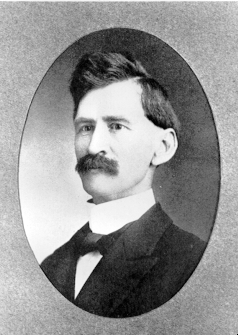Our series on Colorado’s governors continues with Julius C. Gunter, Colorado’s 21st governor. Governor Gunter served one term from 1917-1919. As part of the State Publications Library’s effort to digitize governors’ addresses, Governor Gunter’s inaugural address is available in our digital repository.
Early life

Julius Caldeen Gunter was born in 1858 in Fayetteville, Arkansas. After earning a law degree from the University of Virginia in 1879, he moved to Colorado and opened a law office in Trinidad, starting a prolific legal career. He was elected as a judge in Colorado’s Third Judicial District around 1886, and was later appointed to the Colorado Supreme Court, serving as a judge between 1905-1907. Along with his legal and judicial work, Gunter was elected president of the Colorado State Bar Association in 1907.
Gunter also worked to support education in Colorado, serving as the president of Tillotson Academy in Trinidad, Clayton College in Denver, and Colorado University in Denver.
Political career
Governor Gunter received the Democratic nomination for governor and was inaugurated on January 9, 1917. His inauguration speech focused on Colorado’s growth as the state neared its 40th birthday. He continued his advocacy for education, urging the General Assembly to, “approach all of our work with a big, generous spirit, especially so as to our educational, penal and charitable institutions and system of highways.”
The United States entered World War I shortly after Gunter’s inauguration. Colorado was the first state to appropriate funding to mobilize its National Guard and Gunter helped to organize the Colorado Home Guard, the Colorado Wartime Council, and the Council of Defense to aid the troops. Gunter was ultimately labeled “Pro-German” by local newspapers for refusing to support practices that discriminated against German and Eastern European immigrants, which likely led to his not being nominated by the Democratic Party for a second term.
Gunter dealt with another major historical event, the 1918 influenza pandemic, during his term. The flu is believed to have originated on swine farms in Kansas near the Colorado border, so Colorado’s state government acted quickly to try to control the spread. The 1917-1918 report of the Colorado State Board of Health describes emergency meetings Gunter held in October, 1918 to discuss the seriousness of the pandemic and to draft executive orders urging the closure of public gathering spaces. In response to these closures, the report reads that Colorado’s public “responded so nobly to an appeal for cooperation by Governor Gunter…every community in the state responded to every regulation promulgated, looking toward the prevention of a widespread outbreak of the dread disease.”
Life after politics
After failing to gain re-nomination in the 1918 Democratic primary, Gunter left office. He later turned down an offer to return to the bench of the Colorado Supreme Court. Judge and Governor Gunter died in Denver in 1940 and is buried in Fairmount Cemetery.
- Celebrating Colorado’s immigrant heritage - June 27, 2025
- Colorado’s Scenic and Historic Byways: Guanella Pass - June 6, 2025
- Who is protecting Colorado’s pollinators? - May 16, 2025